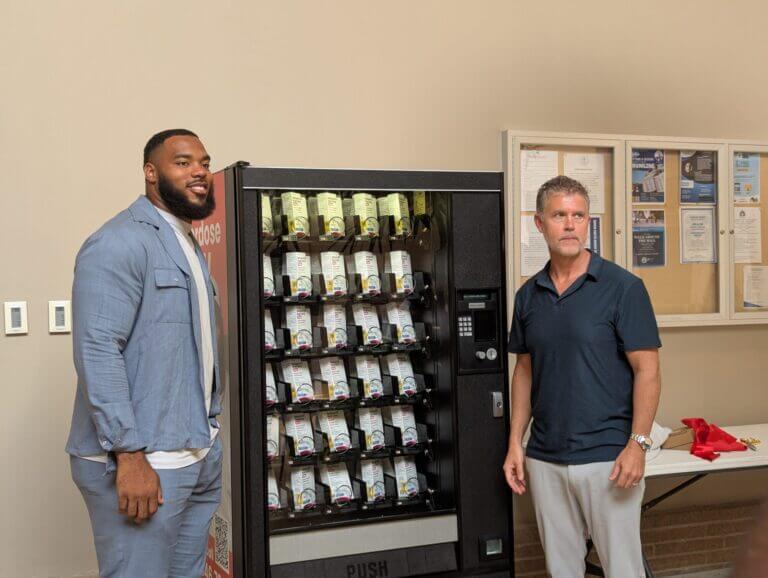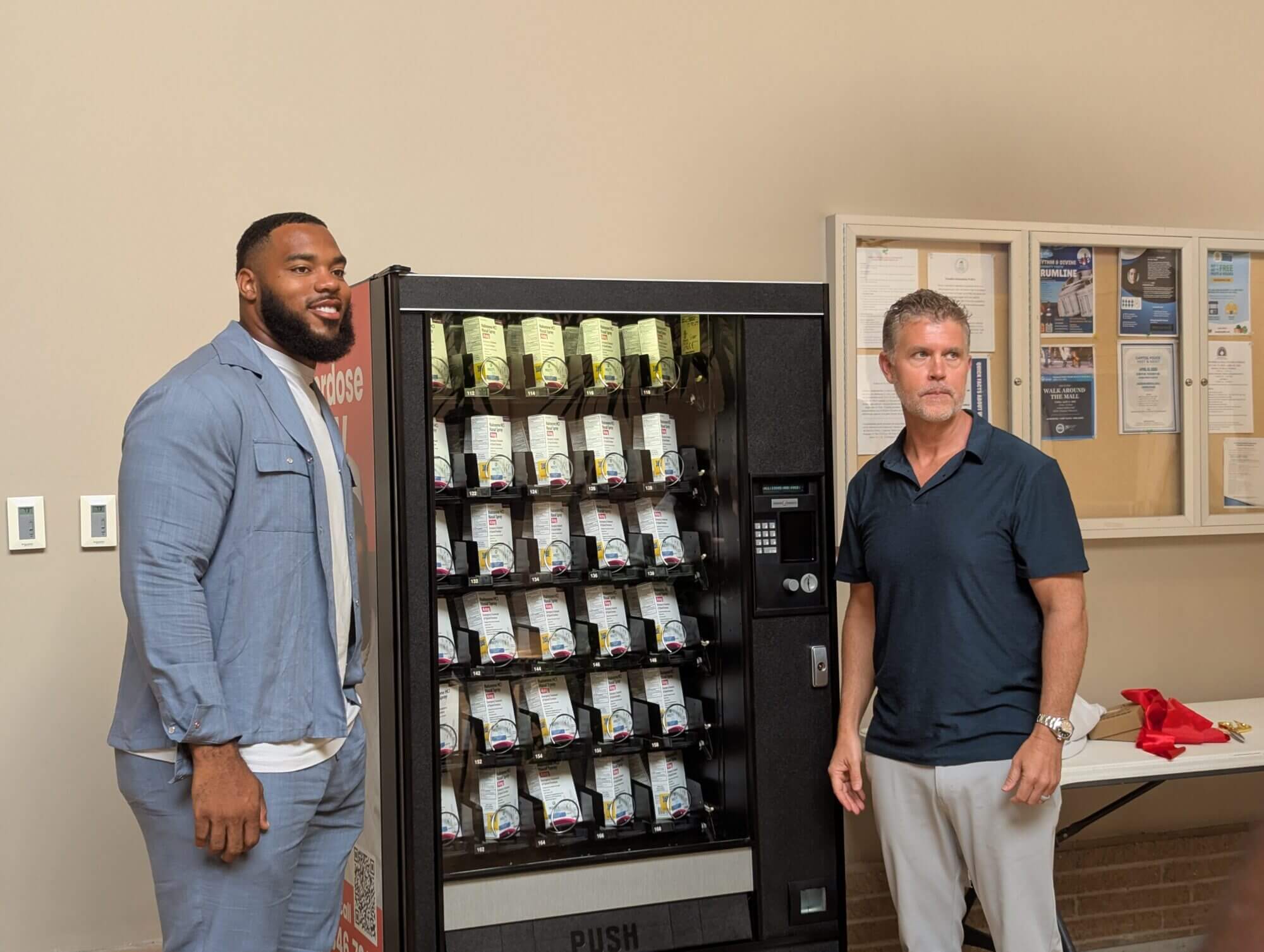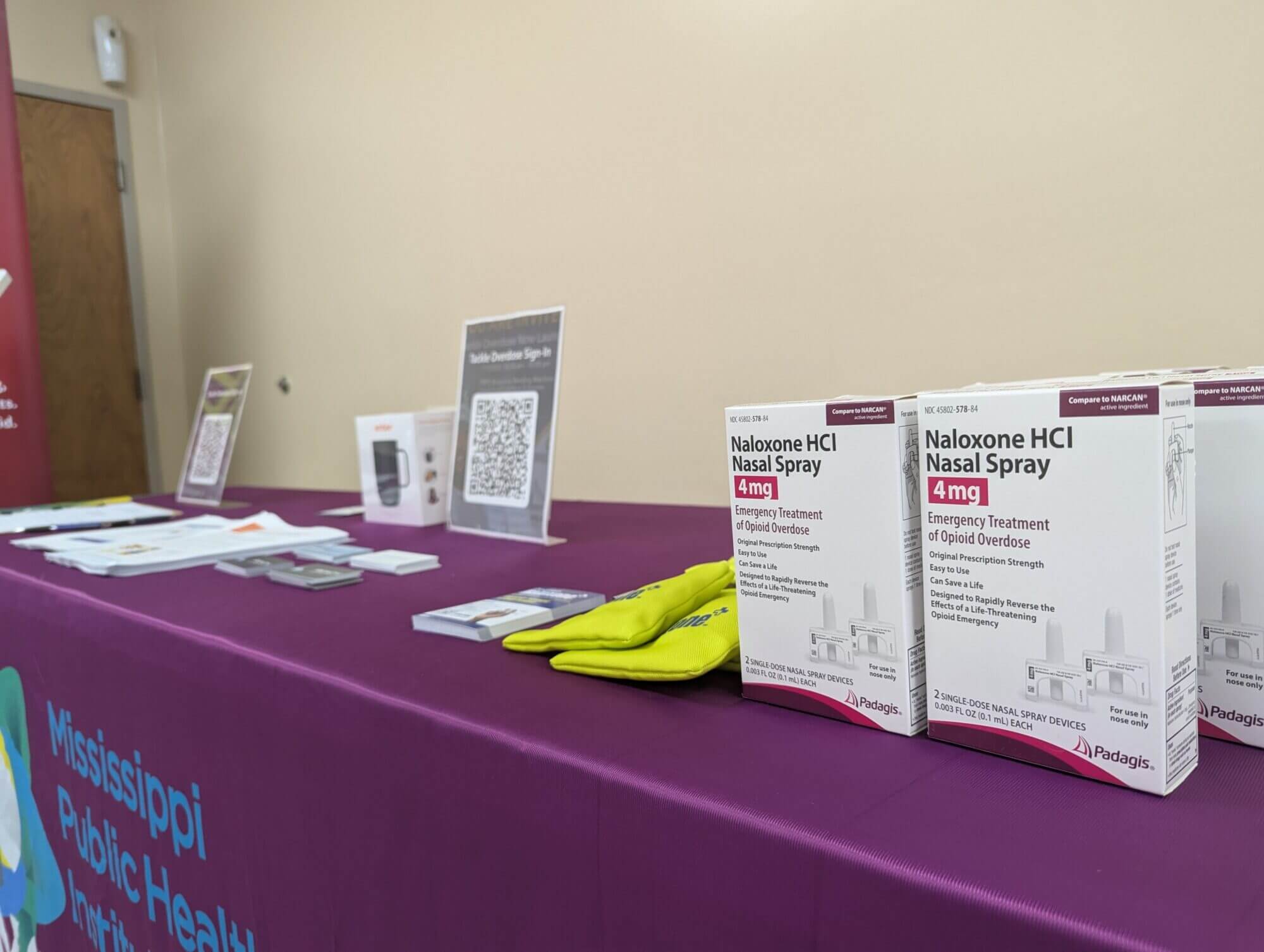

Several public health groups unveiled a new vending machine Monday in the Jackson Medical Mall, where people can pick up free boxes of naloxone, a medicine that temporarily reverses opioid overdoses in children and adults.
The machine holds 250 boxes. Fund Recovery and the REACH Institute donated the machine, and Padagis donated the naloxone.
Naloxone attaches to opioid receptors in the brain and reverses or blocks the effects of opioids. It has no effect on people who don’t have opioids in their system.
Naloxone only works for 30 to 90 minutes. Someone who takes a dose will still need immediate medical attention.
Jeffery Simmons is a Mississippi native and defensive tackle for the Tennessee Titans. He’s featured throughout Fund Recovery’s “Tackle Naxolone Now” campaign, and he specifically chose Jackson as the location for Fund Recovery’s fourth naloxone vending machine.
“I’m not from Jackson, but I grew up right down the road. I see what’s going on in our community,” Simmons said. “Mississippi is home for me, so I don’t just think about Macon, Mississippi, Starkville…. I think about Mississippi.”
The “Tackle Naloxone Now” campaign seeks to make the medicine more accessible by distributing it free in vending machines. The campaign already set up machines in Tennessee: two in Fentress County and one in Nashville.

“What we know is that prevention is important, treatment is important,” said Ryan Cain, Fund Recovery’s president and CEO. “We recognize that, but you can’t treat a dead patient, so we have to make naloxone available.”
Jan Dawson is the director of substance use education, prevention and control at the Mississippi Public Health Institute. She explained that the vending machines are part of the larger effort to combat opioid abuse and overdose deaths.
“We know over time that naloxone has saved a lot of lives in Mississippi,” Dawson said.
Working with the Department of Mental Health, the institute has trained first responders about drug overdoses, and she said 77% of them have used naloxone.
“We do think that we’re saving lives,” she said. “However, what we have to realize is, our numbers of overdose deaths are just now down to the pre-COVID numbers.”
The number of opioid overdose deaths in Mississippi spiked by 51% between 2020 and 2021, in part because of the pandemic. It declined by 25% between 2021 and 2022, and grew by 6% between 2022 and 2023. It declined again by 29% between 2023 and 2024.
In 2024, the number of times emergency medical services administered naloxone dropped nearly 14% compared to 2023.
“We have reduced those numbers,” Dawson said. “We haven’t continued to let those numbers go up, but we have to continue to fight.”
According to Dawson, a grant from the Mississippi Department of Mental Health will pay to restock the machine for at least the next year. None of the state’s opioid settlement funds went toward the machine.
- State Supreme Court considers reviving former Gov. Phil Bryant’s lawsuit against Mississippi Today over welfare scandal coverage - February 18, 2026
- Winter storm update: Mississippi still waiting on fed declaration for individual assistance, lawmakers crafting plan to fund recovery - February 18, 2026
- Shy of special session, Mississippi school choice appears dead - February 18, 2026